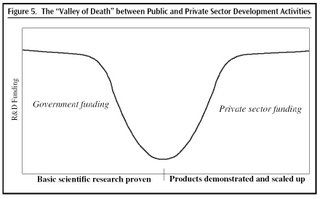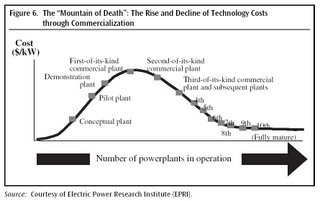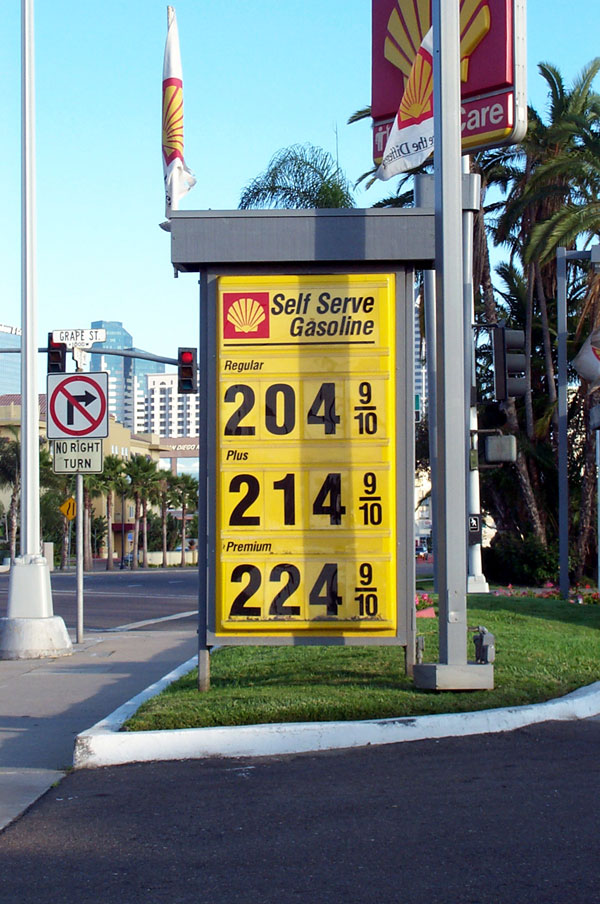WorldBank report discusses the need for technology acceleration
The report "Accelerating Clean Energy Technology Research, Development, and Deployment Lessons from Non-energy Sectors" clearly makes a case for clean-tech acceleration as the means to break through the system bottlenecks that have plagued this nation for over 35 years.
Figure 5 (The “Valley of Death” between Public- and Private-Sector Development) and Figure 6 (The “Mountain of Death” of Technology Costs) provide an excellent glimpse into the systemic challenge:


Labels: Physics and Facts








.jpg)







